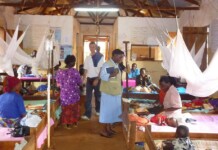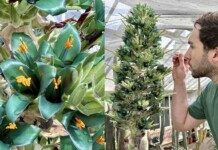 Unsustainable collection practices are threatening the survival of many of the plant species used in traditional and modern medicines. After three years of collaboration between conservation groups, the first set of principles and criteria for the sustainable wild collection of medicinal plants was introduced.
Unsustainable collection practices are threatening the survival of many of the plant species used in traditional and modern medicines. After three years of collaboration between conservation groups, the first set of principles and criteria for the sustainable wild collection of medicinal plants was introduced.
Concern over the decline in medicinal and aromatic plant populations and supplies, has been growing for some years and the new standard addresses requests from industry, governments, organic certifiers, resource managers and collectors for a means of assessing the sustainability of wild collection.
The new International Standard for Sustainable Wild Collection of Medicinal and Aromatic Plants (ISSC-MAP) has been produced by the World Wildlife Fund, the World Conservation Union (IUCN-SSC) Medicinal Plant Specialist Group, TRAFFIC the wildlife monitoring network, and the German Federal Agency for Nature Conservation (BfN).
This document is designed to help the people involved in the harvest, management, trade, manufacture and sale of wild-collected medicinal and aromatic plant resources to understand and comply with the conditions under which sustainable collection of these resources can take place.
It also provides potential frameworks for addressing a rising consumer concern and desire for information on the sustainability and ethical implications of products.
IUCN, WWF and TRAFFIC are working together in several countries to apply the ISSC-MAP to certification, resource management, and development of national laws and policies. They are also working with several independent companies and industry associations – currently in the Ukraine, Morocco and Bosnia-Herzegovina – to implement the ISSC-MAP through voluntary codes of practice.
“This important effort will benefit the health and well-being of both the ecosystems they are part of, and the local people who depend on them for their livelihoods”, stresses Dr. Susan Liebermann, Director of WWF’s Species Program.
The process of developing the principles and criteria that make up the ISSC-MAP has also involved an international, multi-stakeholder advisory group representing industry, independent certifiers, organizations working on fair trade, sustainable livelihoods and sustainable agriculture and forestry.



















